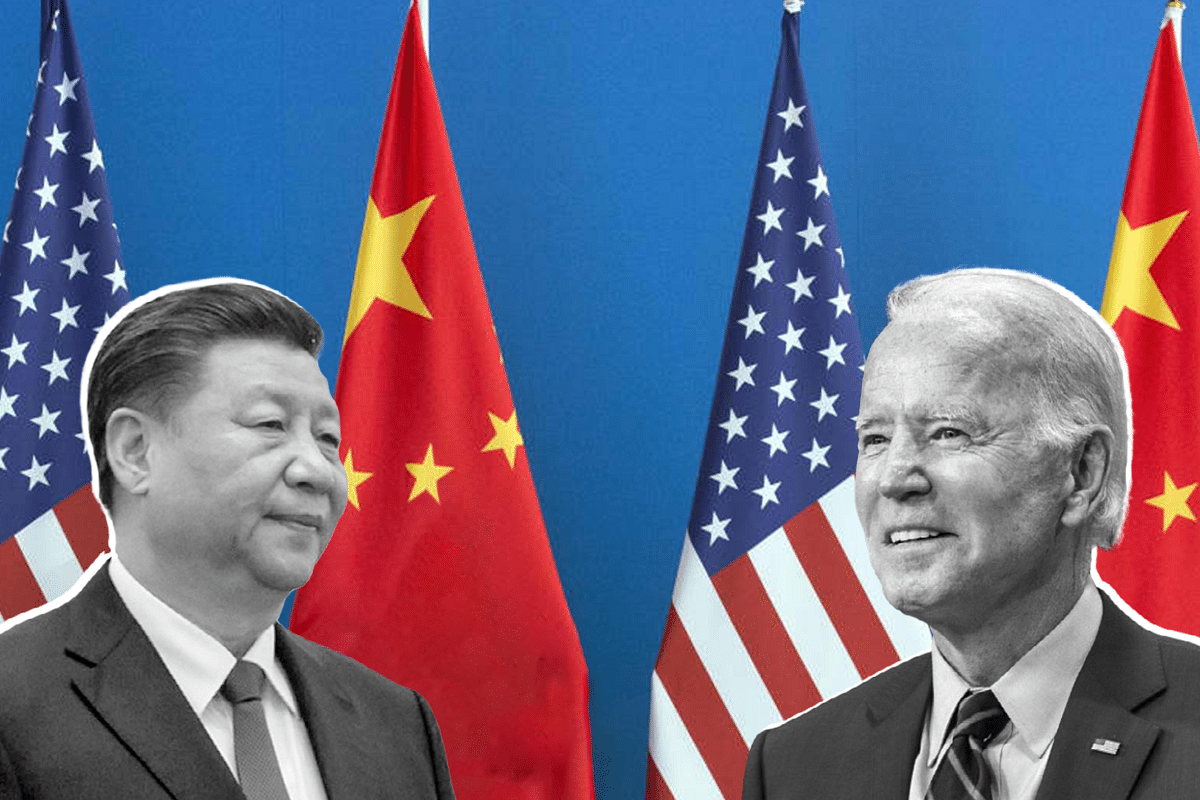News Brief
Xi-Biden Have Two-Hour Long Call; China Delivers Warning On Taiwan
- Biden and Xi last spoke in March, shortly after the Russian invasion of Ukraine.

Xi Jinping and Joe Biden.
President Joe Biden and China's Xi Jinping held the fifth conversation of their presidencies on Thursday, speaking for more than two hours.
According to the White House, the call began at 8:33 a.m. EDT and ended at 10:50 a.m. EDT. It took place as Biden aims to find new ways to work with the rising global power and strategies to contain China's influence worldwide. Differing perspectives on global health, economic policy and human rights have long tested the relationship — with China's refusal to condemn Russia's invasion of Ukraine adding further strain.
''The two heads of state had in-depth communication and exchanges on China-US relations and issues of mutual concern,'' China Central Television reported on its website.
China Warns U.S.
Chinese leader Xi Jinping told U.S. President Joe Biden that the United States should abide by the 'one China' principle with regard to Taiwan and ensure that its actions are consistent with its words, Chinese state media reported.
"Those who play with fire will only get burnt," the Chinese president told Biden during a phone call, adding that it hopes that U.S. side can see this clearly.
Pelosi’s Potential Visit to Taiwan
The latest pressure point has been House Speaker Nancy Pelosi's potential visit to Taiwan, the island that governs itself democratically and receives informal defensive support from the US, but which China considers part of its territory. Beijing has said it would view such a trip as a provocation, a threat US officials are taking with heightened seriousness in light of Russia's incursion into Ukraine.
''If the US insists on going its own way and challenging China's bottom line, it will surely be met with forceful responses,” Zhao Lijian, a spokesperson for China's Foreign Ministry, told reporters earlier this week.
“All ensuing consequences shall be borne by the US.''
Pelosi would be the highest-ranking US elected official to travel to Taiwan since Republican Newt Gingrich visited the island in 1997 when he was House speaker. Biden last week told reporters that US military officials believed it was “not a good idea” for the speaker to visit the island at the moment.
Keeping the Communication Lines Open
John Kirby, a US national security spokesman, said Wednesday that it was important for Biden and Xi to regularly touch base.
''The president wants to make sure that the lines of communication with President Xi remain open because they need to,” Kirby told reporters at a White House briefing. “There are issues where we can cooperate with China on, and there are issues where obviously there are friction and tension.” Biden and Xi last spoke in March, shortly after the Russian invasion of Ukraine.
''This is one of the most consequential bilateral relationships in the world today, with ramifications well beyond both individual countries,” Kirby said.
Biden’s Economic Concerns as U.S. Economy Shrinks
The conversation comes as Biden has moved to shift the U.S. reliance on Chinese manufacturing, including Senate passage Wednesday of legislation to encourage semiconductor companies to build more high-tech plants in the US.
Biden wants to marshal global democracies to support infrastructure investments in low- and middle-income nations as an alternative to China's Belt and Road Initiative, which aims to boost China's trade with other global markets.
The interaction also comes at a point when the U.S. economy has contracted for a second quarter triggering fears of a recession. The financial tremors could prove to be consequential for President Joe Biden’s popularity and have an impact on the key midterm polls.
Biden, who has kept in place Trump-era tariffs on many Chinese-manufactured goods in order to maintain leverage over Beijing, is weighing whether to ease at least some of them in a move to lessen the impact of soaring inflation on American households.
US officials have also criticised China's “zero-COVID” policy of mass testing and lockdowns in an effort to contain the spread of COVID-19 in its territory, labelling it misguided and fretting that it will further slow global economic growth.
(with inputs from PTI feed)
Support Swarajya's 50 Ground Reports Project & Sponsor A Story
Every general election Swarajya does a 50 ground reports project.
Aimed only at serious readers and those who appreciate the nuances of political undercurrents, the project provides a sense of India's electoral landscape. As you know, these reports are produced after considerable investment of travel, time and effort on the ground.
This time too we've kicked off the project in style and have covered over 30 constituencies already. If you're someone who appreciates such work and have enjoyed our coverage please consider sponsoring a ground report for just Rs 2999 to Rs 19,999 - it goes a long way in helping us produce more quality reportage.
You can also back this project by becoming a subscriber for as little as Rs 999 - so do click on this links and choose a plan that suits you and back us.
Click below to contribute.
Latest